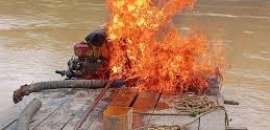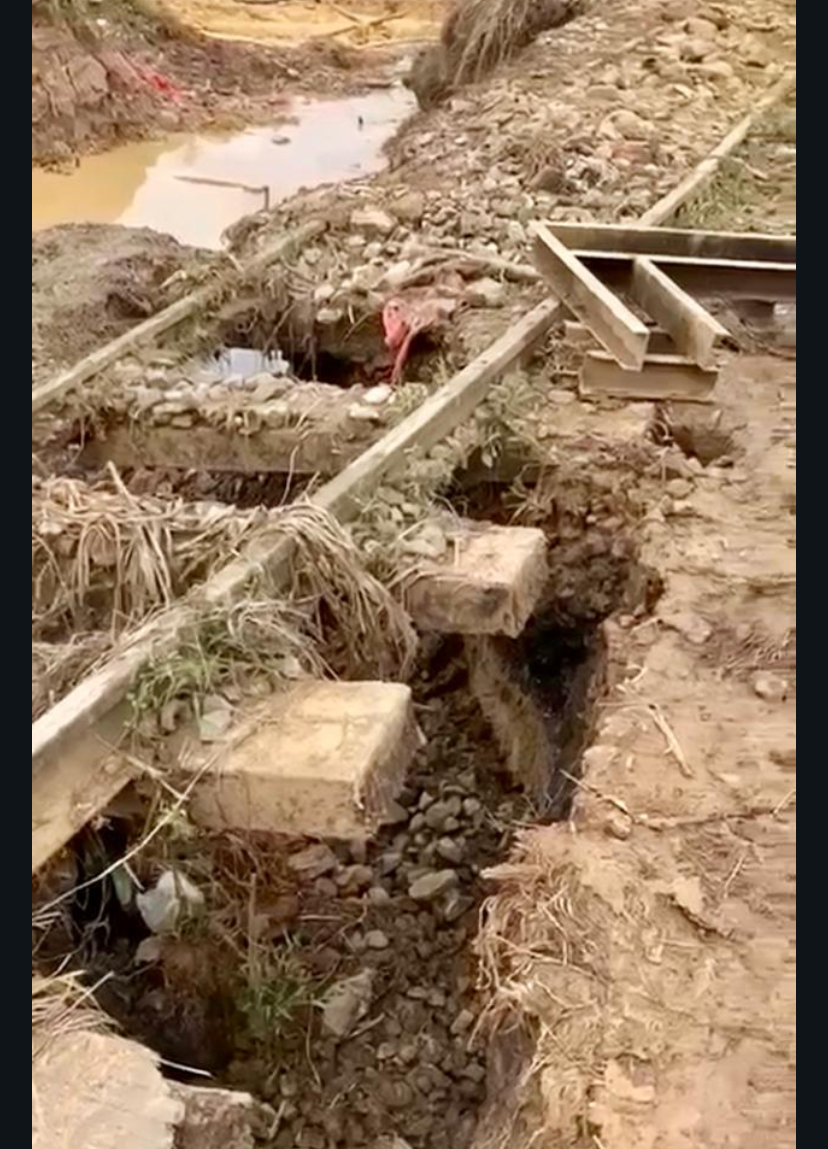
Small-Scale Miners' Taskforce Destroys Over 120 Illegal Mining Machines
Oct 22, 2025
by Ekow Benyah Oct 04, 2025

October 4, 2025
Illegal small-scale miners, known locally as galamseyers, have taken over and destroyed sections of the Takoradi-Nsuta railway line, dealing another devastating blow to the already struggling Ghana Railways Company Limited.
The railway line, once described as the "mainstay" of Ghana Railways, transported an average of 80,000 tonnes of manganese per month at its peak and sustained the company's operations along with the Sekondi-Takoradi passenger service.
Pictures and videos obtained by ConnectNews show young men mining directly beneath and around the tracks at Achem, between Bonsawire and Nsuta. Several meters of the railway line have been destroyed, with the illegal mining occurring brazenly just behind a construction site of Armandi Holdings, the contractor working on the new standard gauge railway project.
Most alarmingly, the illegal mining is encroaching dangerously close to the new standard gauge lines, a multi-million-dollar project that has already seen rail lines laid up to Manso, with land formation completed up to Esuaso before Bonsawire.
Management of Ghana Railways Company is aware of the destruction but appears powerless to intervene. Railway workers, who have gone 11 months without salaries, have abandoned routine patrols of the lines.
"We used to patrol the lines, but have since stopped. There is no motivation. We have not been paid for 11 months. I can confirm that management is aware of what is happening at Achem," one worker told ConnectNews, adding that videos and pictures of the destruction have been shared on their WhatsApp groups.
The company's decline has been dramatic. In 2020, Ghana Railways recorded one of its highest manganese haulages, moving 800,000 tonnes and generating a profit of GH¢57.12 million. However, years of neglect and poor maintenance led to frequent derailments. By late 2024, haulage operations ceased entirely due to the deteriorating state of the tracks.
"It is sad, but Railways is collapsing," another worker admitted.
The destruction of the railway line is the latest in a growing list of national assets compromised by illegal mining. Water bodies have become heavily silted, water treatment plants have been shut down, and power transmission lines threatened. The galamsey menace now directly threatens critical transport infrastructure.
Despite numerous interventions by successive governments, illegal mining persists and continues to spread. The government has rejected calls to declare a state of emergency, insisting it is not the solution, even as the cost of inaction mounts daily.
Frustration is building among Ghanaians as the government fails to escalate its response. Some citizens are proposing drastic measures, including a controversial "shoot and kill" policy, though others fear such tactics could fuel tensions in mining communities, as already seen in parts of the Ashanti Region.
The situation raises urgent questions about the protection of national assets. If illegal mining can destroy a railway line with impunity, what is to stop it from undermining bridges, dams, or other critical installations?
As the Ghana Railways Company, once a proud pillar of the nation's industrial backbone, teeters on the brink of collapse, the government faces a critical choice: confront galamsey with the urgency of a national emergency, or watch as infrastructure and economic potential are buried under the rubble of inaction.